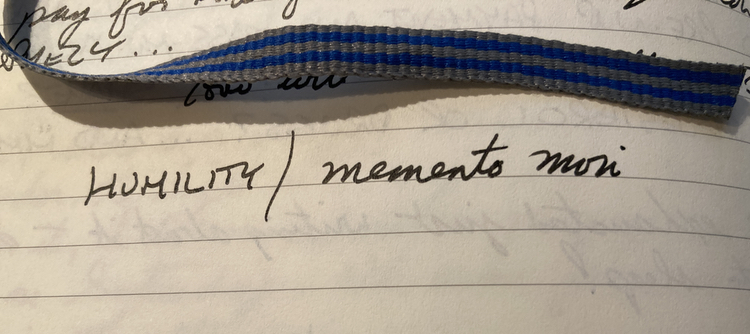(Part 27 of 37 in series, Study inspired by Pakour & Art du Déplacement by V. Thibault)
Have you noticed: Once you know something, you see it everywhere?
Reading this section, I’m reminded of Joe Erhmann’s ideas from the book “InsideOUT Coaching,” and of Steven Covey’s, “The 7 Habits of Highly Effective People.” Both of which also counsel beginning with what’s inside; Beginning by taking a step back and noticing — perhaps _learning_ to notice is the first step — the broader context.
Over a decade ago, the previous-me was entirely focused inward, on myself, on the small picture. That previous-me molted as I managed to become self aware and began learning empathy. With empathy came the ability to listen and, most recently, the ability to communicate, “How can I help?”
And yet I still regularly find myself stressed out.
My impatience regarding…
fat loss
movement progression
the podcast
memento mori
…grows, and the things I appreciate– the things I have now which I have worked so vary hard for to this point– …well, I’ve grown accustomed to them and while I still internally appreciate them I’ve stopped showing that appreciation externally.
I need to shift my goals.
I need to move the goal posts.
I need to set milestones at smaller intervals.
When you make some new connection, one then suddenly sees it everywhere.
On a recent Saturday — a day I usually jam full of goals — I accidentally set so few goals for the day, that by 4pm I was completely done. Normally, I set my goals at “do all the things” [meme image omitted :], and at some point each day I surrender with a fatalistic, “that’s enough for today!” It took me a long time to get comfortable knowing I’m organized and motivated enough that I will make progress towards my long-term goals. But every day is either a day “off” with rest and relaxation with minimal work towards goals, or a day “on” where everything is ordered– flexible, adjustable, prioritized sure, but ordered none the less.
On this particular Saturday, at 4pm…
It was surreal. It was just a nice feeling, like, “Okay, what do I want to do?” I wandered around in this daze of, “Gee, the weather is nice,” “Wow, the feel of the concrete under my bare feet is nice,” “I’d forgotten to notice how comfortable this chair is,” and “Wow, this food is particularly yummy.”
What was different? Nothing.
I still had — still have! — an enormously-complex, personal productivity system which holds all the things I’m working on. That’s not bad; That’s good. It helps me greatly by remembering everything for me, so I can use my brain for having ideas and doing things. I still have a house with a sort of strange spot on one of the ceilings that I think means the roof might be leaking. I still have a leak in the shower that I haven’t figured out. There’s still some firewood to be split.
…but for one evening — a Saturday from about 4pm until I went to sleep around 9:30 — for one evening, I clearly forgot to put in one (or both!) of the ingredients that make up the recipe for being stressed out.
ɕ

